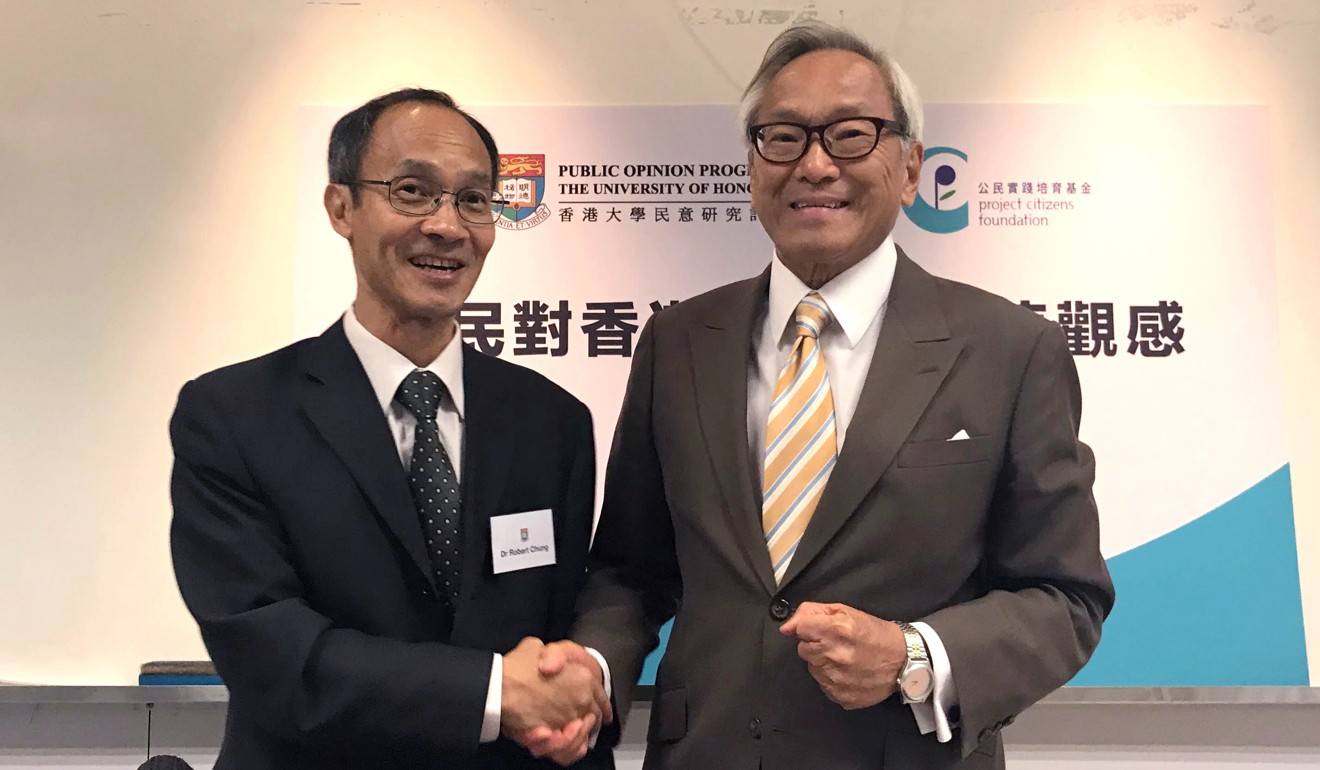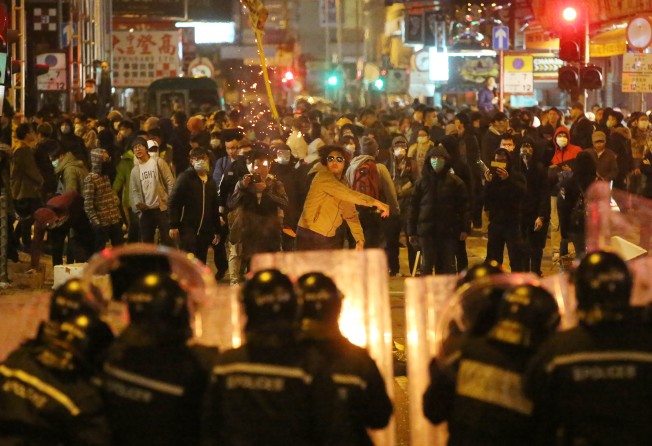
Hongkongers consider public order and rule of law to be more important than democracy, survey shows
Some 1,010 residents gave democracy an importance rating of eight out of 10, the lowest among a number of social indicators

Hongkongers consider democracy to be the least important among 12 social indicators, with its eight out of 10 score falling behind public order and rule of law, a survey has found.
Respondents also rated the performance of democracy in the city as an unsatisfactory six out of 10, compared with public order, which scored 7.6, the highest performance rating given.
“It is now the low tide of democracy movements. We do not know if citizens [have become] discouraged and apathetic,” Dr Robert Chung Ting-Yiu, director of the Public Opinion Programme at the University of Hong Kong, who conducted the survey, said on Thursday.
“People may place less value [on democracy] as they do not have high hopes [of reaching democracy], for the sake of striking a psychological balance.”
Hong Kong’s pro-democracy movement was considered to be sagging after the Occupy movement in 2014. The 79-day protest failed to move Beijing to grant greater democracy and the city’s youth are now less interested in participating in political protests, it showed.
The survey, initiated by Project Citizens Foundation, interviewed 1,010 Hong Kong residents aged 18 or above.
Respondents were asked to rate the importance and actual performance of 12 social indicators, from zero to 10.
“Public order”, “rule of law” and “corruption-free practices” were rated the most important indicators with the same mean score of 9.2, with “stability” and “freedom” coming next with scores of nine and 8.9.
“Democracy” was rated the least important with eight, and given a performance rating of six.

In another part of the survey, “chief executive and Legislative Council returned by universal suffrage” was also given the least importance rating at a score of 7.4, while the value of “judicial independence” topped the others with a score of 8.7.
The co-founder of the foundation and Hong Kong’s former chief secretary, Anson Chan Fong On-sang, stressed the score of eight was not a low one and noted that “the rule of law” could not be maintained well without a democratic system.
Tsim Tak Lung, chairman of the foundation, agreed: “It is by no means a score which is unsatisfactory. What is unsatisfactory is the performance it had been rated,” he said, adding that Hongkongers were unhappy about the pace of democratic development in the city.
In-depth analyses revealed that more educated survey respondents gave lower performance ratings to “democracy” and “welfare”. And the younger the respondents, the lower their performance ratings for “fairness” and “rule of law” were.
Separately, the survey also asked respondents to name the most valuable characteristics of Hong Kong. “History and culture” was the most picked choice, with 47 per cent and “core values” – including freedom and the rule of law – came second with 37 per cent.